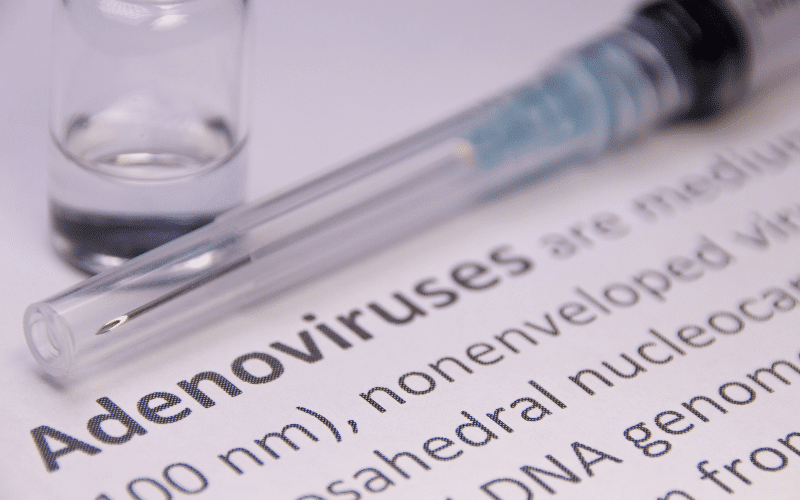Frequently Asked Questions

1. How long does it take for adenovirus symptoms to appear?
Adenovirus symptoms typically appear within 2-14 days after exposure to the virus. The incubation period can vary depending on the specific strain of adenovirus and the individual’s immune system.
2. Is there a treatment for adenovirus infection?
There is no specific antiviral treatment for adenovirus infections. In most cases, the infection is self-limiting and can be managed with supportive care, including rest, hydration, and over-the-counter medications to alleviate symptoms.
3. How long does adenovirus infection last?
The duration of an adenovirus infection can vary depending on the individual and the specific strain of the virus. Most infections resolve within 1-2 weeks, but some symptoms, such as a lingering cough, can persist for several weeks or even months.
4. Can adenovirus infections be prevented?
Practicing good hygiene habits, such as frequent handwashing, avoiding close contact with infected individuals, and keeping your living environment clean, can help reduce the risk of adenovirus infection. There is currently no vaccine available for the general public to prevent adenovirus infection.
5. Are some people more susceptible to adenovirus infections?
While anyone can contract an adenovirus infection, certain individuals may be at higher risk, including young children, older adults, and those with weakened immune systems or chronic medical conditions.
6. Can adenovirus infections cause complications?
In some cases, adenovirus infections can lead to complications, such as pneumonia, bronchitis, or more severe eye infections. It’s essential to seek medical attention if symptoms worsen, persist, or are accompanied by other concerning signs, as timely intervention can help prevent complications and ensure appropriate treatment.
Conclusion: Navigating the Symptoms of Adenovirus Infection
Adenovirus infection can present a wide range of symptoms, from mild respiratory issues to severe gastrointestinal distress. Understanding these symptoms and knowing how to manage them effectively can help you recover more comfortably and recognize when to seek medical attention.
Prevention is crucial in reducing the risk of adenovirus infection. Practice good hygiene habits, such as frequent handwashing, avoiding close contact with infected individuals, and keeping your living environment clean. If you suspect an adenovirus infection, consult your healthcare provider for appropriate guidance and treatment.
By being informed and proactive, you can better protect yourself and others from the impact of adenovirus infections and ensure a healthier, safer environment for everyone.